The convergence of AI and IoT empowers industries and businesses in various ways. This dual technology combination enables both devices and software applications to work with better efficiency and innovative abilities.
From startups to enterprises, every business entity today leverages the powerful benefits of AI and IoT combination in their software and mobile applications to enhance their performance.
If your business also utilizes IoT devices, you should be aware of how the combination can help you elevate your business growth. In this blog, we will discuss how IoT is used in modern AI applications and how businesses can take advantage of IoT and AI applications.
So let’s get started.
Table of Contents
How Do AI and IoT Work Together?
AI (Artificial Intelligence) and IoT (Internet of Things) are complementary technologies that often work hand in hand to create sophisticated and efficient systems. IoT’s function is to connect devices to a common internet network. It allows users to control the devices through software or mobile applications. Artificial intelligence is a computational programming that mimics human intelligence.
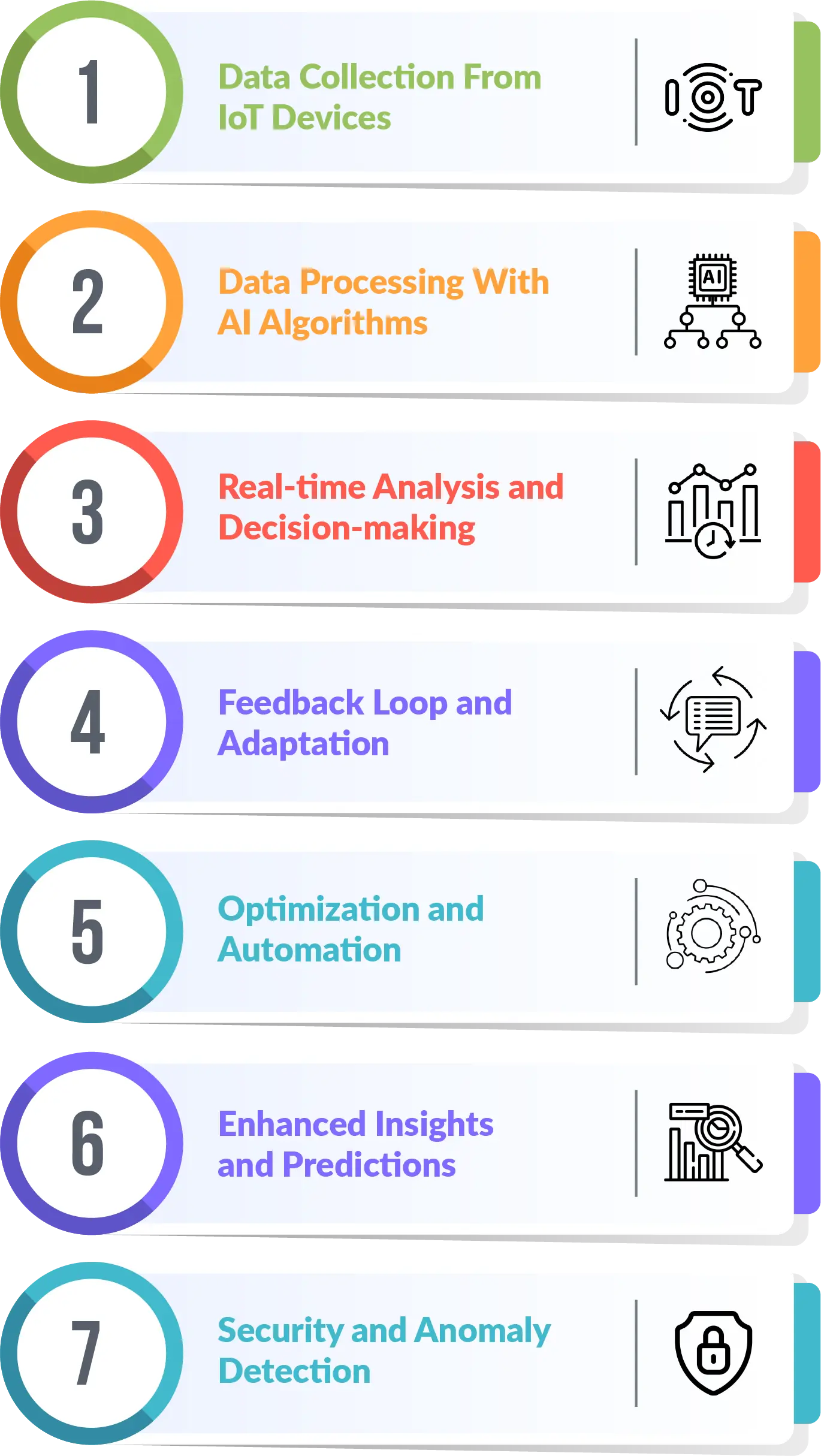
The integration of AI and IoT in software or any application amplifies the capabilities of both technologies. It allows for more intelligent, adaptive, and efficient systems. As a result, it makes use of real-time data to drive decision-making, automation, and innovation across various domains.
This is because IoT and AI have a wide scope for their mutual convergence. Consequently, they both work together complementary and give plenty of advantages. Here is how IoT and AI work together in modern applications.
1. Data Collection From IoT Devices
IoT devices encompass a wide array of sensors, actuators, and interconnected gadgets to collect and transmit data. They gather information about the environment, machines, user behavior, or any other relevant data point.
2. Data Processing With AI Algorithms
Once the IoT devices collect data, AI algorithms come into play. These algorithms, including machine learning, deep learning, and other AI techniques, analyze the collected data. They interpret patterns, detect anomalies, and derive valuable insights from the vast amount of information generated by IoT devices.
3. Real-time Analysis and Decision-making
After this, AI processes the data from IoT devices in real time or periodically, depending on the application. This real-time analysis enables immediate decision-making or triggers specific actions based on the insights obtained.
4. Feedback Loop and Adaptation
AI algorithms can learn and improve over time. They continuously process data from IoT devices and learn from the outcomes of their decisions. Thus, AI app development solutions for IoT can refine their models and become more accurate and efficient.
5. Optimization and Automation
The collaboration between IoT and AI leads to optimized processes and automation. AI algorithms learn users’ preferences from IoT-connected devices and automate settings based on observed patterns or explicit user instructions.
6. Enhanced Insights and Predictions
Artificial intelligence can assess large amounts of data from IoT gadgets. It enables the extraction of deeper insights and predictions. For example, IoT apps assist in accelerating the agriculture sector in various ways. IoT sensors collect data on soil moisture, temperature, and crop growth. And, AI analyzes this data to predict optimal irrigation schedules or forecast crop yields.
7. Security and Anomaly Detection
In addition to this, AI algorithms enhance security by analyzing data from IoT devices. It detects anomalies or potential security breaches and helps in identifying and responding to threats effectively.
Read Also: 5 Major IoT Security Challenges: Learn How to Tackle Them Effectively
Why Businesses Should Implement AI in IoT App Development?
IoT is an instrumental technology for businesses. From retail to manufacturing and real estate to electronics, there are many AI and IoT use cases in multiple industries. Picture this, a user can operate his washing machine or refrigerator by using a mobile application. They can even operate other home appliances or industrial equipment through an IoT application.
However, IoT provides extensive scope for using the power of mobility and software for remote controllability of devices. The integration of AI into IoT app development services empowers businesses with enhanced data processing capabilities. For instance, improved efficiency, personalized experiences, proactive maintenance, and robust security.
Artificial intelligence transforms IoT applications into intelligent systems. Eventually, applications powered by IoT and AI support innovation, improving operations, and delivering superior user experiences.
According to the latest market statistics report, the global AIoT platform market was $4.7 Billion in 2022. It is now projected to reach $129.2 Billion by 2032 at a CAGR of 39.5% by 2032.
As per another report, the global AI in IoT market size is recorded at $73.23 Billion in 2023. And this is projected to attain $106.91 Billion by 2028 at a CAGR of 7.86% during 2023-2028.
This massive growth in the adoption of artificial intelligence in IoT is due to increasing digitalization. Businesses today look for intelligent and efficient software and mobile apps to operate IoT devices and smart gadgets.
With AI, it becomes easier and more effective. By integrating artificial intelligence in IoT application development, they build robust and modern IoT apps. Here are the top benefits of implementing AI into IoT which fosters business growth:
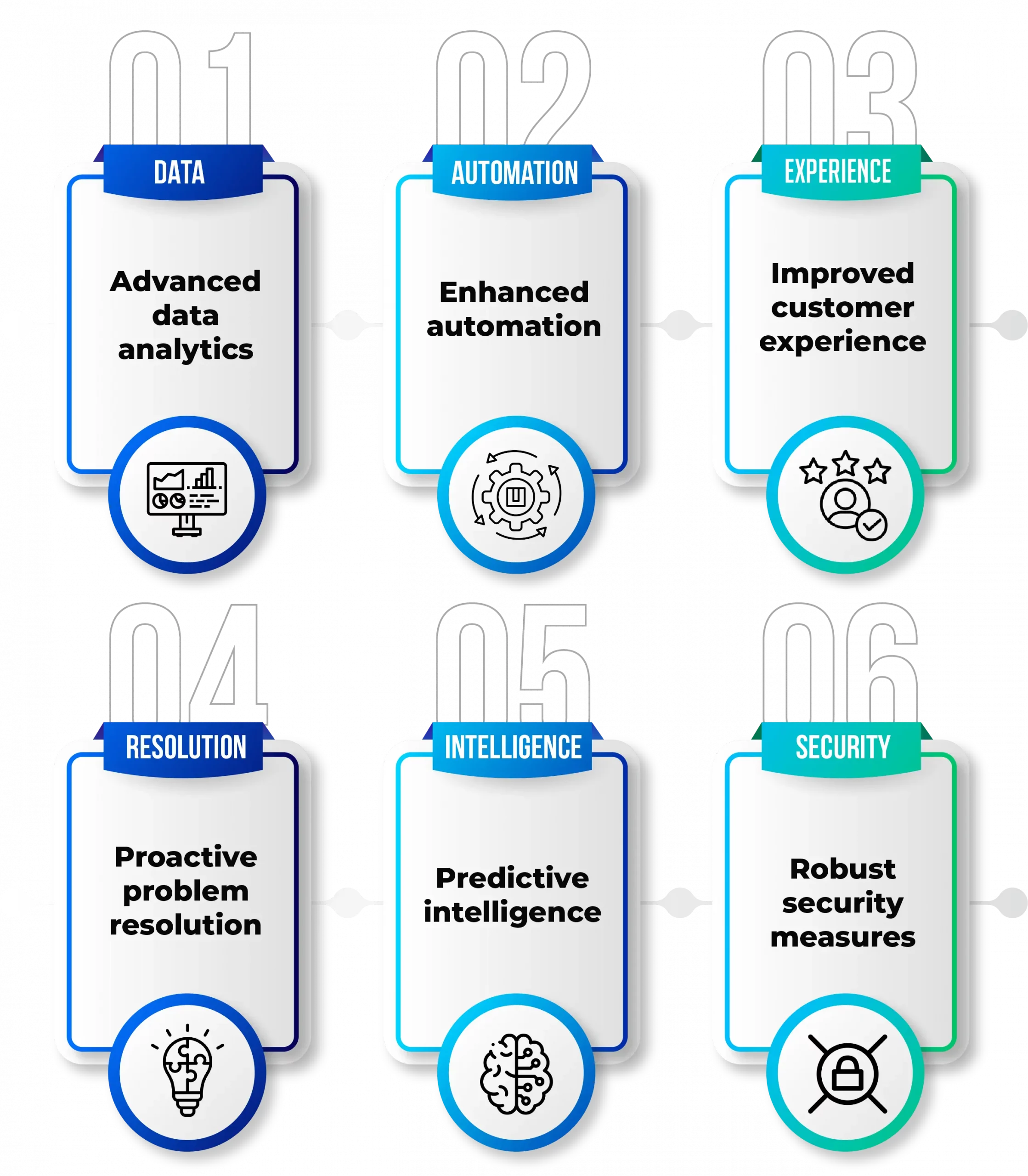
- Advanced data processing and Insights
- Enhanced automation and efficiency
- Improved personalization and customer experience
- Proactive problem resolution and predictive maintenance
- Scalability and adaptability
- Enhanced security measures
- Competitive edge and innovation
How Are AI and IoT Used in Modern AI Applications?
In modern AI software applications, the integration of AI and IoT technologies leads to more sophisticated and data-driven functionalities. The combination of IoT and AI in software applications makes them more intelligent and adaptive. They enable the software or mobile application to make real-time data-driven decisions. This, as a result, leads to improved efficiency, convenience, and effectiveness across various domains. Here’s how they collaborate in modern AI applications:
Real-time Data Processing
AI and IoT combine forces for real-time data processing. IoT devices collect vast amounts of data and AI algorithms process this data on the fly. For instance, sensors in manufacturing plants continuously gather data on equipment performance. With the help of AI, modern applications analyze this data in real time to predict potential faults or suggest optimization strategies. Thus, they ensure minimal downtime and efficient operations.
Predictive Analytics
IoT devices generate a continuous stream of data. AI algorithms, through machine learning and predictive modeling, analyze this data to forecast future outcomes or behaviors. In retail, IoT sensors track customer behavior in stores, while AI algorithms predict buying patterns. Hence, the use of IoT in modern applications enables businesses to stock inventory more effectively, tailor promotions, and enhance customer experiences.
Read Also: IoT in Retail: Benefits, Challenges, Use Cases, and More
Personalization and Customization
AI algorithms use data collected from IoT devices to personalize experiences for users. For instance, smart home devices learn user preferences for temperature, lighting, and entertainment choices. They adjust settings automatically based on individual habits. In e-commerce, AI analyzes IoT data to recommend personalized products or services to consumers. As a result, AI-powered e-commerce apps are more able to improve customer satisfaction and engagement.
Enhanced Security
IoT devices are vulnerable to security threats. However, applications equipped with AI and IoT security protocols are less vulnerable to potential threats. AI-powered mobile apps or software applications can analyze unusual patterns in data collected from IoT sensors. They can detect anomalies or potential breaches in real time. So, this proactive approach helps prevent security threats before they escalate. And thus, it secures applications and IoT networks effectively.
Efficient Resource Management
Integrating IoT and AI in modern applications assists in optimizing resource management across various sectors. For example, IoT sensors track usage patterns in energy management, while AI algorithms predict demand. This enables efficient allocation of resources. Consequently, it reduces waste and lowers operational costs. In smart cities, AI-powered applications analyze data from IoT devices to manage resources like water and electricity more effectively. Hence, using artificial intelligence and IoT in mobile apps or software makes resource management efficient and productive.
Healthcare Applications
IoT devices like wearables and medical sensors collect patient data continuously. AI processes this data to monitor health conditions, detect anomalies, and predict potential health issues. This feature offers early intervention, remote patient monitoring, and personalized treatment plans. Hence, healthcare apps improve healthcare delivery and patient outcomes.
Read Also: How IoT Can Be a Game-Changing Step For Your Healthcare App Development?
Smart Agriculture
The combination of artificial intelligence and IoT works as a boon in the agriculture sector. IoT sensors deployed in agriculture process data on soil moisture, temperature, and crop health. AI-powered applications analyze this data to optimize irrigation schedules, predict crop diseases, and recommend precise fertilizer usage. This, as a result, helps farmers make informed decisions, increase crop yield, and reduce resource wastage.
Traffic Management and Navigation
IoT-enabled traffic sensors, cameras, and GPS data combined with AI algorithms allow for efficient traffic management and navigation systems. AI-based applications examine real-time traffic data to optimize traffic flow, predict congestion, and suggest alternative routes. So, it ultimately assists in reducing commute times and enhancing overall transportation efficiency.
Read Also: IoT in Smart Cities: How IoT Apps Will Transform The Future of Living?
Top Examples That Used AI and IoT In Their Applications
There are many renowned as well as small businesses that have harnessed the power of artificial intelligence in IoT. By integrating IoT and AI in their modern applications they have witnessed dramatic improvements in their operations and revenue growth.
Tesla: Tesla’s electric vehicles heavily rely on AI and IoT integration. Their cars use AI-powered applications that constantly gather data from various sensors and cameras. Eventually, it enables features like autonomous driving, predictive maintenance, and over-the-air updates that enhance performance and safety.
Amazon: Amazon’s Echo devices, powered by AI assistant Alexa, utilize IoT connectivity to control smart home devices. Alexa interprets voice commands by leveraging AI algorithms to provide personalized responses. It executes tasks such as playing music, ordering products, and managing smart home appliances. And, after implementing this, the company recorded a significant increment in product demand.
Siemens: A leader in industrial IoT, Siemens uses AI algorithms to analyze data from IoT sensors in manufacturing plants. This integration helps in predictive maintenance and optimizing production processes. Due to this, they are now able to reduce downtime by identifying potential issues before they occur.
Nest (Google): Nest’s smart home devices, now under Google, use IoT sensors for temperature control, security cameras, and more. AI algorithms learn user preferences over time. It automatically adjusts settings for energy efficiency. And thus provides personalized experiences in home automation.
Microsoft: Microsoft Azure IoT Suite incorporates AI capabilities into its IoT platform. This integration enables businesses to deploy machine learning and AI algorithms for predictive analytics, asset tracking, and optimizing operational processes across various industries.
IBM: IBM’s Watson IoT platform uses AI capabilities to analyze data from connected devices. This integration assists in, supply chain optimization, also in enhancing operational efficiency for various industry verticals such as manufacturing and healthcare.
Wrapping Up
Artificial intelligence and IoT are both powerful and future-proof technology. Their mutual collaboration gives great benefits for several business purposes. From advanced data processing to automation and proactive solutions to robust security, the integration of IoT and AI in modern applications offers multiple advantages to businesses.
As the demand for IoT and smart devices is growing, the scope of AI in IoT is also opening the doorway for more innovation and advancement. However, implementing artificial intelligence in IoT is in the evolution stage. Thus, it is wise to seek expert guidance from a professional company that provides AI-based IoT app development services.


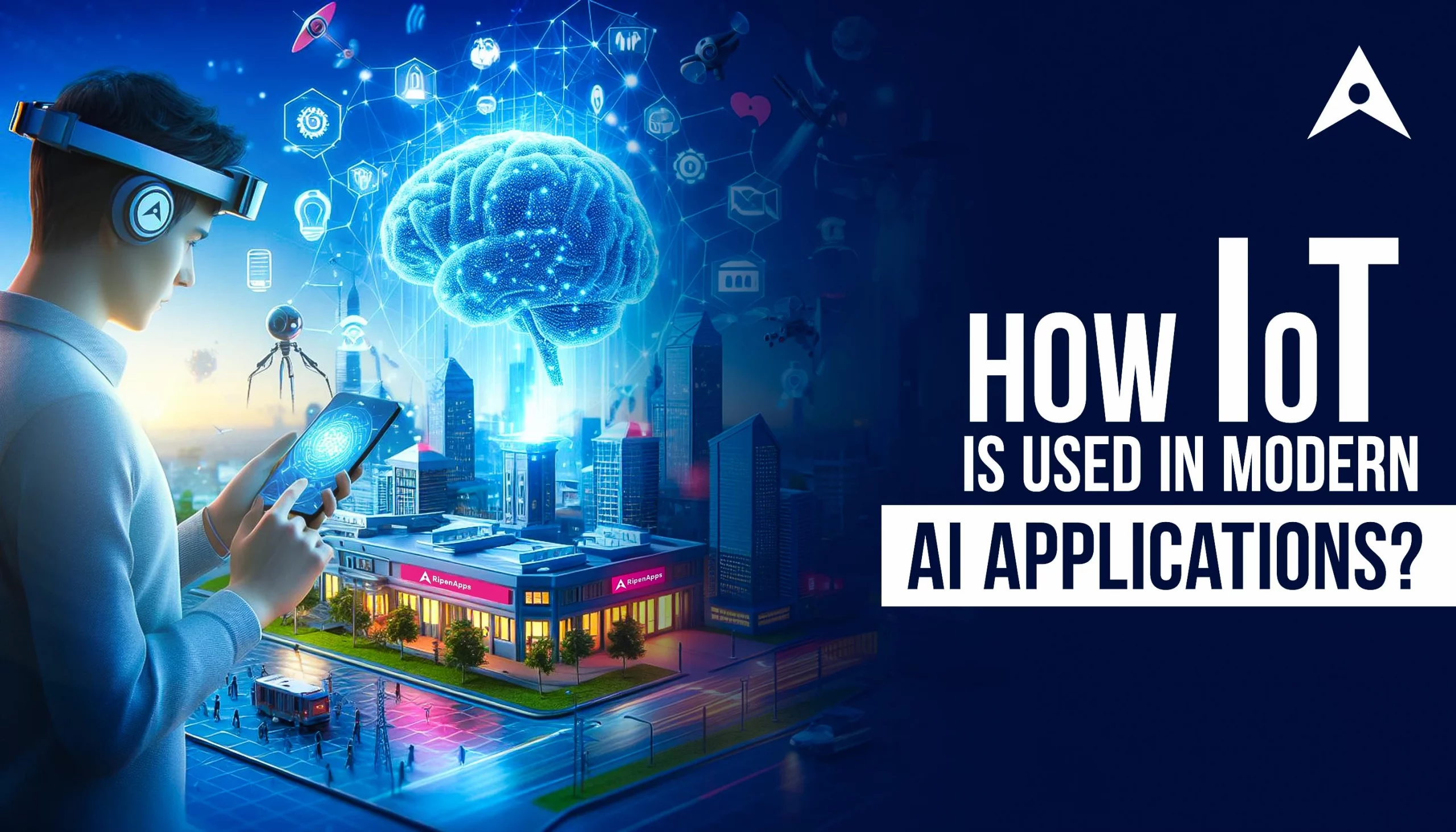




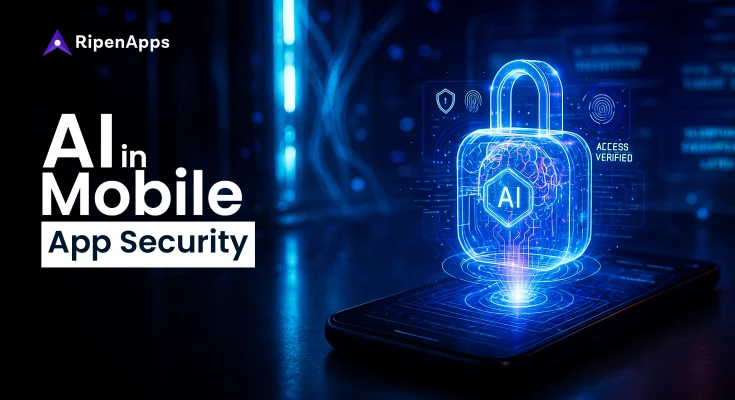
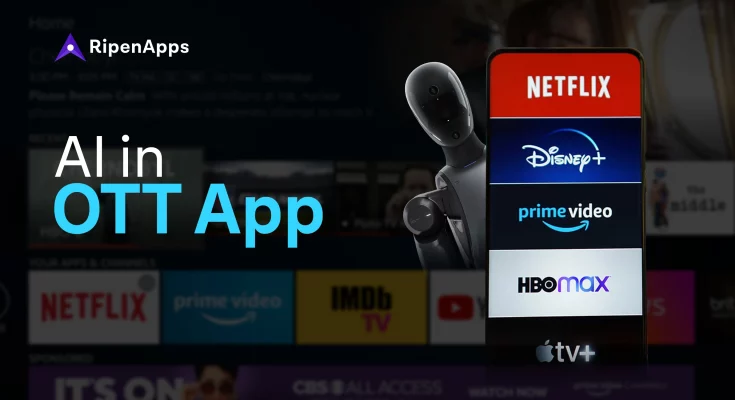
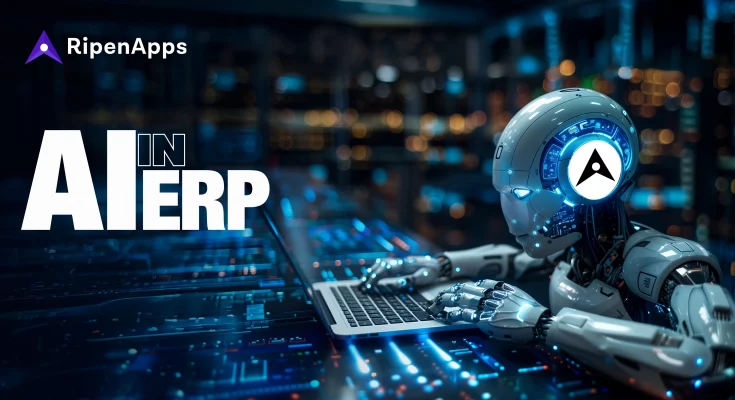

 India
India USA
USA Australia
Australia Canada
Canada UK
UK UAE
UAE
